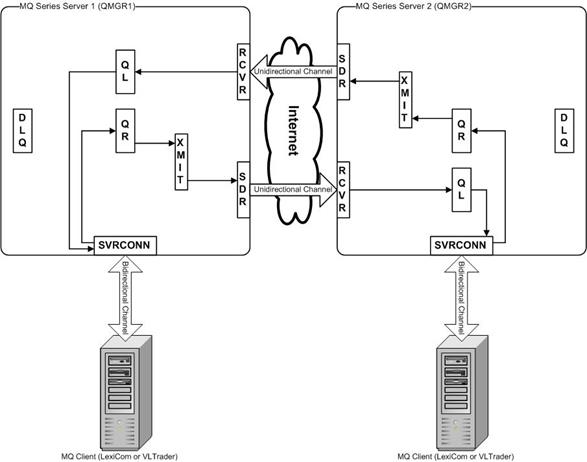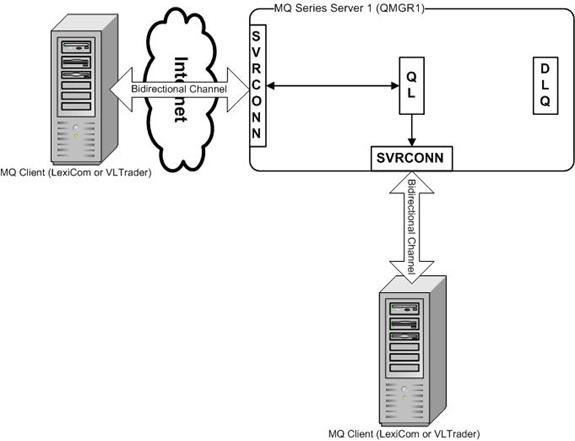IBM MQSeries (also known as WebSphere MQ or IBM MQ) is a widely used means of guaranteed message delivery.
It uses Queue Managers containing local (and sometimes remote) message queues to send and receive message data. MQSeries uses a store-and-forward mechanism to transport the message data. If the remote Queue Manager is not available, the local Queue Manager retains the message until the remote Queue Manager is ready to receive it. Messages that cannot be delivered can eventually be stored in a dead letter queue.
Messages are put on queues and are generally retrieved on a First-In-First-Out (FIFO) basis. MQSeries also allows the use of a message-priority field (per-message) to put higher-priority messages at the front of the queue. User authentication and message security can also be applied to the sending and receiving channels.
IBM MQSeries includes a Java client API that allows an application (such as the VersaLex application) to programamtically connect to a Queue Manager using server-connection channels to PUT, GET and LIST messages on queues from either a local or remote Queue Manager. These Java client API files are included as part of the VersaLex installation.
There are two ways to access a partner's queues:
- Queue Manager to Queue Manager: Messages are written to a remote queue (QR) on the
user's local Queue Manager (QMGR1) that maps to a local queue (QL) on the remote Queue
Manager (QMGR2). Messages are transported over the internet via uni-directional sender (SDR)
and receiver (RCVR) channels. If required, MQSeries automatically converts the data to the
target queue manager's understood data format. If the remote queue manager (QMGR2) is
unavailable, the sender channel is not running, or the message cannot be delivered for any
other reason, the message is retained in either the transmission queue (XMIT) or the
dead-letter queue (DLQ) on the local Queue Manager (QMGR1). The user must implement
additional monitoring to periodically check the depth of these queues and take the
appropriate action.

- Direct Connection to the Queue Manager: Messages are sent to and received from local queues (QL) on a Queue Manager (QMGR1) using bi-directional server-connection channels (SVRCONN). User authentication and message encryption security (SSL) can be applied to server-connection channels, if desired. This access method does not take advantage of the store-and-forward mechanism; however, if the Queue Manager is not available, an error will occur in the client and the message transport will be re-tried at a later time. Additionally, if required, the Java MQ client API allows for automatic conversion of the data to the target Queue Manager's understood data format.

Either of these methods can be used with VersaLex. Using this section, decide which method fits your requirements and configure your Queue Manager(s) and MQ Host appropriately.